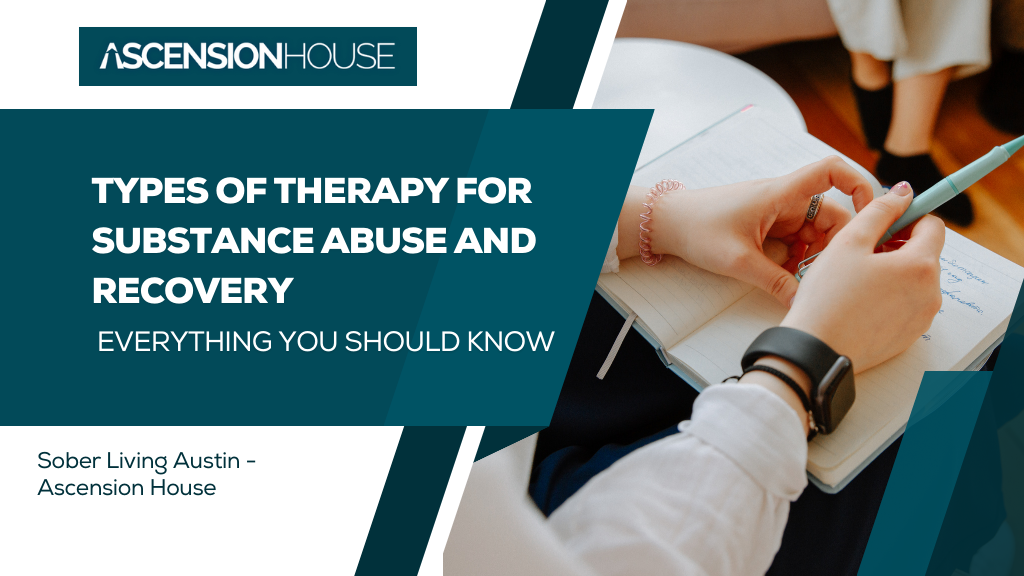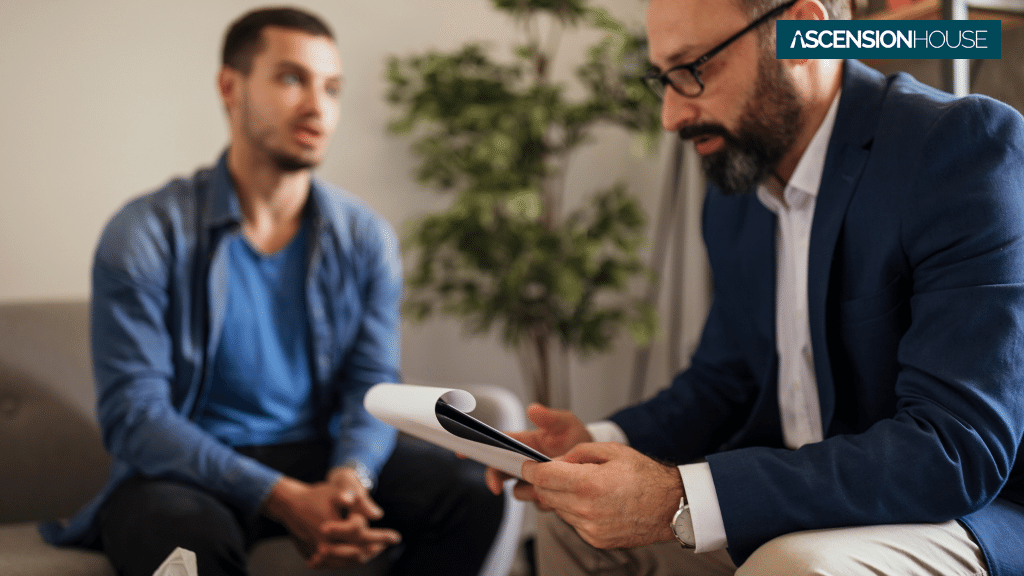
Drug misuse happens frequently in Austin, TX, and throughout the nation. However, you can get help. Addiction recovery focuses on physical abstinence, but you’re also learning to make positive behavioral and mental changes. The way you think will impact how you behave, so counseling and therapy are crucial for addiction treatment. Let’s learn more!
Why Is Therapy Crucial for an Alcohol or Drug Addiction?
Behavioral therapies in Austin, TX, can have many benefits when dealing with drug abuse or alcohol addiction. They can help people by:
- Engaging them in a drug addiction treatment
- Providing incentives to remain sober
- Modifying attitudes and behaviors toward alcohol and drugs
- Increasing life skills while teaching others how to manage their triggers, stress, and high-risk situations
When the substance use disorder leads to a court-ordered treatment, therapy will break down the person’s resistance to help and open doors for recovery. Though there’s no cure for addiction, counseling, and behavioral therapy are crucial parts of the process.
Discover the essential types of therapy for substance abuse and recovery.https://t.co/FpYE4M2OrY pic.twitter.com/6BSGWsOOeP
— Ascension House – Sober Living Austin (@AscensionSober) October 24, 2023
Treatment Options for Drug Abuse (Outpatient/Inpatient Treatment, Etc.)
There are various Austin treatment centers and programs to help with alcohol/drug addiction. Here are the most common treatments available:
- Medical Detox Services – A medical detox offers medical care to the addicted person. It clears the drugs out of the body and helps them deal with withdrawal symptoms. Typically, withdrawal symptoms happen a few hours or days after the drugs leave your system. Medical professionals can make you more comfortable with addiction medicine to combat the withdrawal symptoms and offer full medical care.
- Inpatient Rehab – An inpatient treatment program for a substance use disorder provides more structure and accountability for those recovering from addiction. The client lives at the rehab center for the treatment duration and has a daily schedule that will include group therapy, individual therapy, recovery group meeting participation, and more. Typically, medication management services are offered if necessary.
- Intensive Outpatient Programs – Intensive outpatient programs let clients live in a sober living house or at home while they finish treatment. This gives them more flexibility in dealing with work and childcare. Typically, intensive outpatient treatment requires the person to attend various weekly group meetings hosted at safe locations by licensed professionals.
- Court-ordered Rehab – If a person is arrested and charged with a drug-related crime, they might go to drug court. The judge might sentence them to rehab instead of taking them to jail. However, there are stringent requirements for these programs. Still, individuals can treat the underlying problem and hopefully become better members of society.
- Online Rehab – Online programs let people attend video treatment sessions remotely from their homes. They’re all hosted by a licensed professional and can be helpful when you can’t travel to a meeting.
- Aftercare – Aftercare services are suitable for people who have finished detox, sober living, and rehab. They still need more support to maintain sobriety and will often include weekly meetings and peer accountability.
- Sober Living Programs – These programs offer supportive, safe, and alcohol/drug-free environments for those in recovery. They often have gender-specific homes and give you support and peer accountability with IOP, house meetings, and routine drug tests. Residents will access additional support and clinical therapy services, such as employment assistance, individualized recovery programming, volunteer placement, educational planning, and more.
- Holistic Drug Rehab – These rehab programs provide treatment services that enhance your wellness through the spirit, body, and mind. Options can include yoga, acupuncture, nutritional counseling, and meditation.
- Teen Drug Rehabilitation – Some rehab programs are tailored to teenagers with substance use disorder. They address the specific needs of teens and focus on what young people might face during recovery while offering social and educational services to make it easier to re-integrate into society after the rehab is completed.
There are countless treatment options available. However, the best one will depend on your financial needs, treatment history, the severity of your addiction, and other factors. It’s wise to talk to a professional to find the right plan.
What Is Behavioral Therapy for a Substance Use Disorder?
Behavioral therapies will help people engage well in their drug addiction programs. They’ll learn to modify their behaviors and attitudes regarding illegal drugs, offer incentives to remain sober, and boost their life skills to deal with cravings, triggers, and challenges.
Types of Therapy Used for Addiction and Recovery Treatment
For addiction treatment, various therapies are used at Austin treatment centers, including IOP, residential rehab, and aftercare. Depending on your needs, each is different and might be better or worse. Here are some options you might encounter:
1. Cognitive Behavioral Therapy
Cognitive behavioral therapy uses the core principle that a psychological problem, such as addiction, is based somewhat on unhelpful coping techniques, negative learned behaviors, and harmful thinking patterns. However, there could also be mental health concerns to consider.
CBT will help you change your harmful ways of thinking by teaching you how to recognize them and reevaluate them effectively. You’ll use your problem-solving skills to deal with various situations and develop self-confidence.
Most addicted people have negative thinking patterns. Therefore, it’s harder for them to stop using alcohol and drugs. Likewise, they might feel powerless or develop mental health disorders like depression and anxiety.
With cognitive behavioral therapy, people will overcome their addictive behaviors and explore negative thinking patterns. Sometimes, they’ll talk to a mental health professional or use prescription drugs to help them overcome the addiction.
2. Rational Emotive Behavior Therapy
REBT (Rational Emotive Behavior Therapy) is similar to CBT. It will help you identify negative thought patterns contributing to harmful behaviors. However, it’s different because it will focus more on your belief system and replace irrational or faulty beliefs with those based on logic.
3. Contingency Management
Contingency management is one type of behavioral therapy. Individuals get rewarded for the positive changes they make in their lives. Positive reinforcement often increases the frequency of a behavior, including sobriety. Therefore, if you have a substance use disorder, you might use this with others to get prizes for clean systems and more.
4. Motivational Interviewing
Motivational interviewing is one type of counseling method. The therapist will motivate you to maintain sobriety by identifying your values and motivations and focusing the substance use treatment on that.
You’re not forced to change. Instead, motivational interviewing helps you find what will get you sober and stay that way. With this approach, the counselor forms a bond with you through collaboration. Therefore, you can make the choices for yourself and promote long-term recovery.
5. 12-Step Therapy
The 12-step facilitation therapy focuses on addiction as a medical and spiritual disease. This is a manual-driven therapy, and it uses active participation, acceptance, and surrender for continued sobriety.
Overall, the main idea behind the therapy is that you’re likely to stay sober if you’re involved in a group like AA (Alcoholics Anonymous) or the 12-step program. You’ll have more chances to develop relationships with sober people and can share life stories with those who have had similar experiences.



6. Family Therapy
Family/couples therapy can help you address your substance use problems and any co-occurring issues relating to the relationships between you and your family members.
The idea here is that your familial relationships influence your actions and behaviors. Everyone affected will be involved, and it can improve your relationship, address your problems, and help you communicate more effectively at home.
7. Dialectical Behavior Therapy
DBT is another cognitive behavioral therapy type developed by Dr. Marsha Linehan. It’s used to treat suicidal ideation because of substance use.
People can overcome their self-destructive behaviors by living in the moment (using mindfulness), regulating their emotions, finding good ways of coping with stress, and improving their relationships. Typically, the therapists use group therapy sessions, individual therapy, and other interventions to achieve long-lasting results.
8. EDMR (Eye Movement Desensitization and Reprocessing) Therapy
EDMR was developed in the 1980s to help clients with PTSD. A substance use disorder and trauma often go hand-in-hand, so that it could be a promising approach for those suffering from addiction.
In a sense, EDMR helps clients resolve and process their traumatic experiences and memories while replacing the negative images they associate with the trauma.
9. Person-Centered Therapy
Person-centered therapy can treat substance use disorders and addiction, among others. It focuses more on the individual instead of the substance use. Typically, rejection and shame hold you from healing, and self-acceptance will lead to a positive change.
With this type of therapy, the counselor meets with you regularly, establishing a grounded and stable place where you can get relief from your chaotic life. You’ll receive unconditional love, empathy, and acceptance, which helps you learn to see yourself in a better light and practice reflection and self-acceptance.
10. Matrix Model
The Matrix Model helps stimulant abusers overcome addictions to prescriptions, cocaine, and methamphetamine.
If you have an opioid use disorder, you’ll address the contributing factors that led to your addiction and use family therapy, cognitive behavioral therapy, and other evidence-based options to focus more on positive changes.



Should You Work with a Recovery or Substance Abuse Therapist?
If you’re struggling with alcohol or drug addiction, you will likely need help to get sober. Therefore, working with a substance use therapist or a recovery counselor is wise. These experienced and licensed professionals are often found at drug rehab and medical detox centers.
It’s important to overcome your addiction. Therefore, you might speak to your doctor for recommendations. You can ask them for referrals or advice if you already see a counselor or therapist for a condition. Overall, the goal is to understand drug addiction. You no longer have to lose control or develop tolerance to your drug of choice.
Get Evidence-based Care in Austin, TX
Those who misuse drugs typically find themselves worried about seeking treatment. They might have a mental illness on top of it all, and they’re afraid that healthcare providers will shun them or poke fun at them. However, therapy can be a beneficial option for addiction treatment and will help you learn new things and recover.
If you’d like to learn more about your options or how to treat mental health issues and addiction, please get in touch with Ascension House in Austin, TX. Call 512-598-5030 for questions or services available!
FAQs About Substance Abuse Treatment and Therapy
What Is the Best Psychological Treatment for Substance Abuse?
CBT (cognitive behavioral therapy) is one of the best psychological treatment options for a substance use disorder. This one-on-one therapy allows you to meet with a therapist privately over some time. You’ll also learn coping skills and can deal with mental health conditions.
What Type of Behavioral Therapy Is Used for Substance Abuse?
Many types of behavioral therapies are used for a substance use disorder, and it depends on the person and their needs. Typically, motivational interviewing and CBT are the two primary options. Regardless, you should focus on one that will help you deal with your current physical health problems, dependence, and mental health conditions.
Which Therapies Are Most Effective in Treating Addiction?
Behavioral therapy is often the most common option for a substance use disorder. With this type of treatment plan, you will work through any mental disorders you might have and access support groups to help you deal with everything else.
However, you might initially require a partial hospitalization program or residential treatment services to help you detox. Then, you can focus on relapse prevention.
What Are Some Treatment Goals for Substance Abuse?
Treatment goals for a substance use disorder can include:
– Eliminating the use of substances
– Addressing the cause of your addiction
– Seeking mental health services
– Developing stress management techniques
– Maintaining a healthy lifestyle
– Learning to communicate your emotions
– Creating a support system
FAQs
CBT (cognitive behavioral therapy) is one of the best psychological treatment options for a substance use disorder. This one-on-one therapy allows you to meet with a therapist privately over some time. You’ll also learn coping skills and can deal with mental health conditions.
Many types of behavioral therapies are used for a substance use disorder, and it depends on the person and their needs. Typically, motivational interviewing and CBT are the two primary options. Regardless, you should focus on one that will help you deal with your current physical health problems, dependence, and mental health conditions.
Behavioral therapy is often the most common option for a substance use disorder. With this type of treatment plan, you will work through any mental disorders you might have and access support groups to help you deal with everything else.
However, you might initially require a partial hospitalization program or residential treatment services to help you detox. Then, you can focus on relapse prevention.
Treatment goals for a substance use disorder can include:
– Eliminating the use of substances
– Addressing the cause of your addiction
– Seeking mental health services
– Developing stress management techniques
– Maintaining a healthy lifestyle
– Learning to communicate your emotions
– Creating a support system
Book a Free Assessment
Contact us to schedule a free addiction or mental health assessment as part of our admissions process.
 11700 Bittern Hollow Dr., Austin TX 78758
11700 Bittern Hollow Dr., Austin TX 78758 (512) 598-5030
(512) 598-5030






